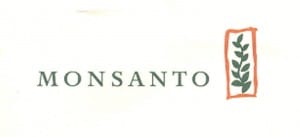[NOTE: The Cornucopia Institute is one of the plaintiffs in the Monsanto seed patent lawsuit.]
Local, organic food may be the top choice for some people, but others are fearing for its future.
Donald Patterson’s family history of farming dates back to the 1700s. He’s been doing it all his life, but he is concerned with biotech giant Monsanto’s impact on the industry.
 “They have focused on creating transgenic seeds, which take the DNA from an unrelated species, generally it’s been a bacteria, and they bring that into the plant,” said Patterson.
“They have focused on creating transgenic seeds, which take the DNA from an unrelated species, generally it’s been a bacteria, and they bring that into the plant,” said Patterson.
Monsanto is the largest producer of genetically modified crops.
Patterson has organized a massive lawsuit against the company. The 83 plaintiffs in The Organic Seed Growers and Trade Association (OSGATA) v. Monsanto are made up of farmers, companies and agricultural organizations from across the United States and Canada. Two central Virginia-based companies, “Southern Exposure Seed Exchange” and “Countryside Organics” are also on the list.
Patterson and OSGATA say the patent on Monsanto’s seeds is a potential problem for organic farmers.
“We believe that they never should have been issued. That they have no utility. They’re destructive. They’re damaging,” said Patterson.
Patterson and others are concerned about what they call “transgenic trespassing,” when a neighboring farmer’s transgenic crops spread to an organic farmer’s field. He also says the patent protection leaves limited public research about the long-term health effects of transgenic food.
In the suit, OSGATA says:
“Not only do transgenic crops violate the property rights of farmers in the same as if a neighbor’s randy, fence-breaking bull impregnated your expensive purebred cattle, it violates the informed-consent health rights of consumers, because they have no way of knowing the long-term health impacts of even 1% of transgenic contamination in food.”
Patterson says many farmers who are victims of transgenic trespassing fear Monsanto will sue them for having its patent-protected seeds on their property.
Monsanto has sued farmers before, but the company says it does not act when trace amounts of their product unintentionally end up in a farmer’s field.
Thomas Helscher, Monsanto’s director of corporate affairs, sent the Newsplex this statement regarding the suit:
“The district court ruling dismissing the case (February, 2012) noted it was simply a transparent effort by Plaintiffs to create a controversy where none exists and further there was neither a history of behavior nor a reasonable likelihood that Monsanto would pursue patent infringement matters against the Plaintiffs. Farmers who have no interest in using Monsanto’s patented seed products have no rational basis to fear a lawsuit from Monsanto, and claims to the contrary, to quote from the district Court, are “groundless” and “baseless.” As was stated in the Court, it has been, and remains, Monsanto’s policy not to exercise its patent rights where trace amounts of our patents are present in a farmer’s fields as a result of inadvertent means. Nothing presented at the appellate hearing (January, 2013) contradicts this or establishes the Plaintiffs’ hypothetical assertions.
We believe all farmers should have the opportunity to select the production method of their choice – whether organic, conventional or improved seeds developed using biotechnology. All three production systems co-exist and contribute to meeting the needs of consumers. Since the advent of biotech crops more than 15 years ago, both biotech and organic crop production have flourished. We have no reason to think that will not continue to be the case.”
A New York judge dismissed the case in February of 2012. OSGATA appealed in January of this year. They are currently waiting for a decision from the appeals court on the dismissal and say they expect it to come soon.
Earlier in the week, the U.S. Supreme Court settled a separate case involving Monsanto. The unanimous decision ruled farmers may not use patented seed for more than one planting. If they do, they are responsible for damages.

